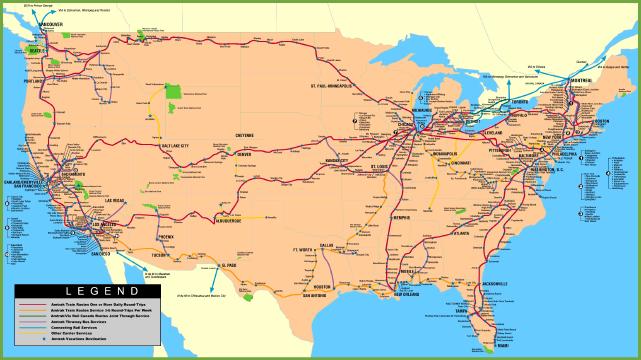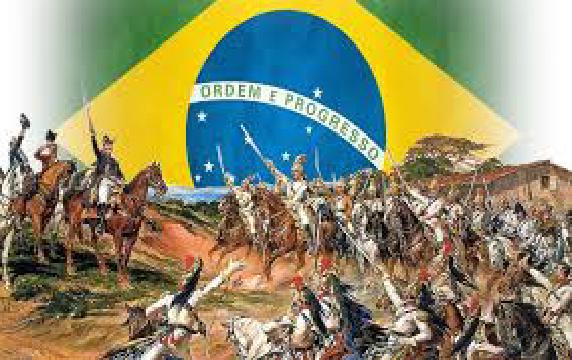
American Railroads P - 1 In the United States, railroads spearheaded the second phase of the transportation revolution by overtaking the previous importance of canals. The mid-1800s saw a great expansion of American railroads. The major cities east of the Mississippi River were linked by a spiderweb of railroad tracks. Chicago’s growth illustrates the impact of these rail links. In 1849 Chicago was a village of a few hundred people with virtually no rail service. By 1860 it had become a city of 100,000, served by eleven railroads. Farmers to the north and west of Chicago no longer had to ship their grain , livestock , and dairy products down the Mississippi River to New Orleans; they could now ship their products directly east. Chicago supplanted New Orleans as the interior of America’s main commercial hub.

The Achievement of Brazilian Independence
In contrast to the political anarchy, economic dislocation, and military destruction in Spanish America, Brazil’s drive toward independence from Portugal proceeded as a relatively bloodless transition between 1808 and 1822. The idea of Brazilian independence first arose in the late eighteenth century as a Brazilian reaction to the Portuguese policy of tightening political and economic control over the colony in the interests of the mother country. The first significant conspiracy against Portuguese rule was organized from 1788–1799 in the province of Minas Gerais, where rigid governmental control over the production and prices of gold and diamonds, as well as heavy taxes, caused much discontent. But this conspiracy never went beyond the stage of discussion and was easily discovered and crushed. Other conspiracies in the late eighteenth century as well as a brief revolt in 1817 reflected the influence of republican ideas over sections of the elite and even the lower strata of urban society. All proved abortive or were soon crushed. Were it not for an accident of European history, the independence of Brazil might have been long delayed.





